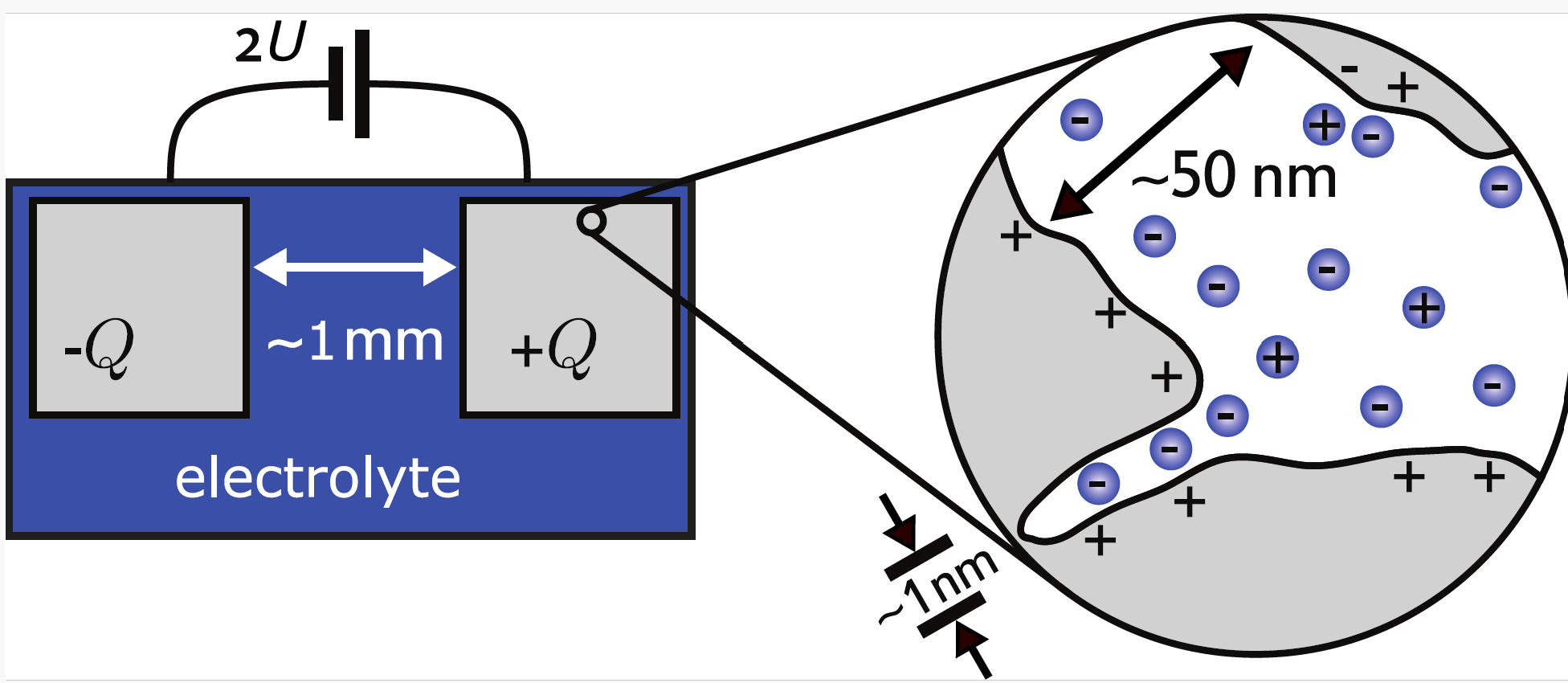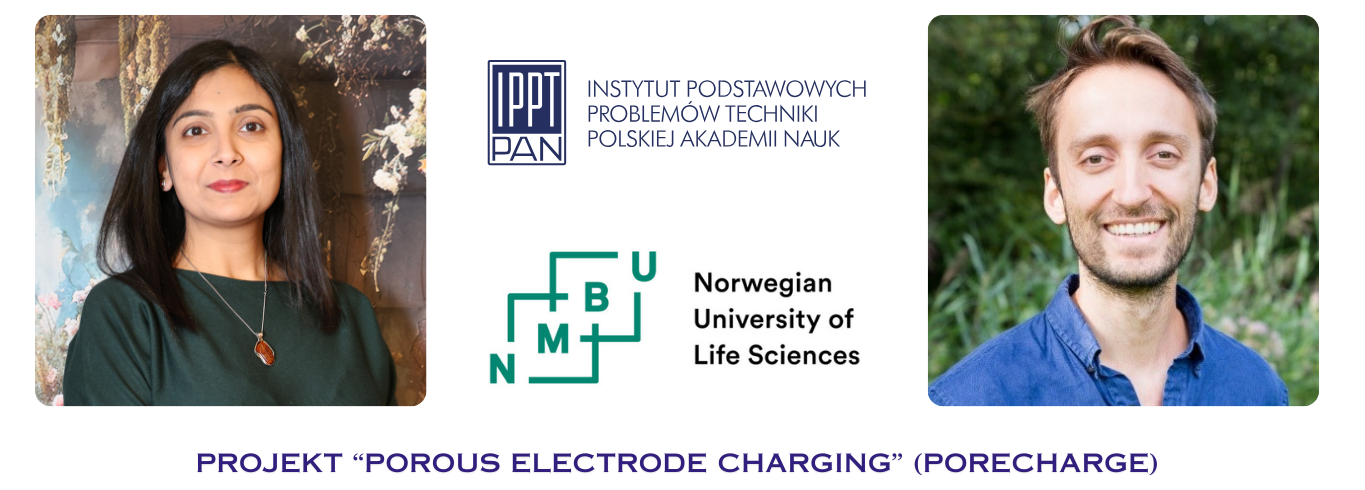On April 1st, the project titled "Porous Electrode Charging" (PoreCharge) commenced in collaboration between the Institute of Fundamental Technological Research of the Polish Academy of Sciences (IPPT PAN) and the Norwegian University of Life Sciences (NMBU).
In the PoreCharge project, researchers will work to increase supercapacitors' ability to store energy by charging electrodes.
Supercapacitors are energy storage devices that can deliver higher power than batteries and degrade more slowly. Now that the world urgently needs to move from fossil to renewable energy sources, supercapacitors can become important components in this transition. They are already used, for example, in electric vehicles and to stabilize the power grid. However, an important limitation of supercapacitors is that the amount of energy that can be stored per volume or weight is low. Attempts to increase the supercapacitors' energy storage have often undermined their power output. To deal with this "energy-power dilemma", the project will develop a multi-scale modelling framework for charging supercapacitor electrodes.

The electrodes of supercapacitors contain pores of different sizes and shapes filled with ions. The narrower the pores, the more energy a supercapacitor can store. However, molecular simulations have shown that ions can get trapped when the pores are too narrow, leading to clogged pores. This should be avoided since clogged pores do not contribute to the power output of supercapacitors. The project will therefore build a model that will reproduce pore-clogging to learn how to prevent it. The modelling framework's accuracy will also be tested in experiments on home-built supercapacitors." The modelling part will be carried out by Prof. Mathijs Janssen, NMBU, Norway and its team and experimental part will be carried out by Dr Amrita Jain, IPPT PAN and its team.

Contract: R&D Project Agreement Document 345079
Duration: 01.04.2024 - 31.03.2028
Financial Resources: 1,000,000 NOK / 12,677,000 PLN
Sponsor: The Research Council of Norway
Type: Researcher Project for Young Talents (FRIPRO)















